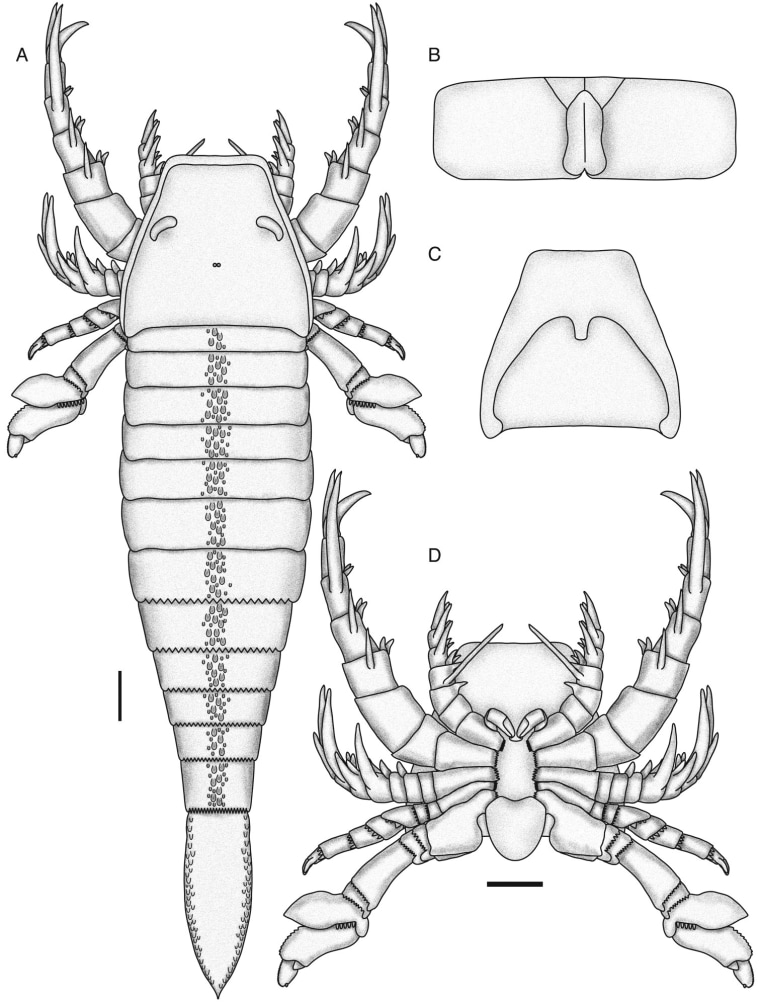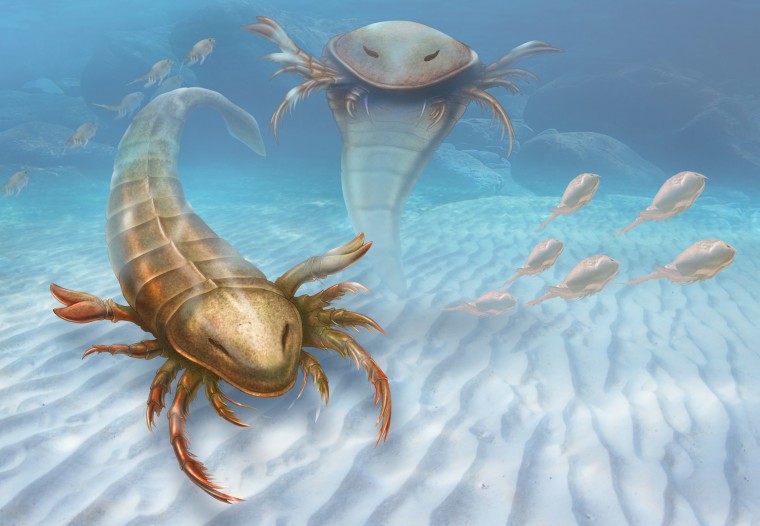Biologists at Yale have discovered a previously unknown species of enormous "sea scorpion" that predates others like it by some 9 million years. Pentecopterus decorahensis was part of a group called the eurypterids, which browsed shallow coastal waters for prey to trap with their claws. It could grow up to 8 feet in length.
Related: Ancient Snake Ancestor Gripped Prey With Four Feet
This species would have lived 467 million years ago, and although it and its close relatives are long extinct, the family tree of these powerful arthropods would eventually grow to include arachnids, ticks, and perhaps not surprisingly, lobsters.

A recently uncovered trove of fossil specimens in Iowa puts Pentecopterus on the scene well before two closely related groups already documented, Eurypterus and Mealograptus. Pentecopterus also includes telltale physical traits from both groups, suggesting it is a shared ancestor — although how many years and species came between it and the later sea scorpions is impossible to say for now.
Related: Newly Discovered Crustacean Named After Elton John
The well-preserved fossils also show the surface of the animal in good detail, and how its claws likely developed as it grew from juvenile to adult. The name Pentecopterus is a reference to a "penteconter," a type of Greek ship the team felt the animal resembled.
James Lamsdell at Yale led the research team. The paper describing the creature and its implications for the history of arthropods appeared Monday in the journal BMC Evolutionary Biology.

